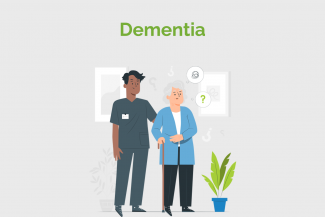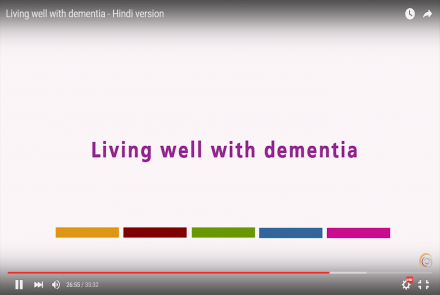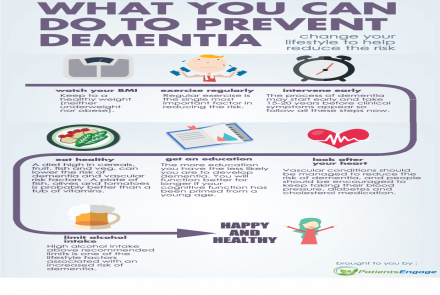
Managing the following may help:
Cardiovascular risk factors: Your brain is nourished by one of your body's richest networks of blood vessels. Anything that damages blood vessels anywhere in your body can damage blood vessels in your brain, depriving brain cells of vital food and oxygen.
Blood vessel changes in the brain are linked to vascular dementia. These are often present along with changes caused by other types of dementia, including Alzheimer's disease and dementia with Lewy bodies. These changes may interact to cause faster decline or make impairments more severe. You can help protect your brain with some of the same strategies that protect your heart. Take steps to keep your blood pressure, cholesterol and blood sugar within recommended limits; maintain a healthy weight; do not smoke.
Hypertension: Hypertension not only causes cardiovascular diseases but is also a risk factor for Alzeimer’s Disease. So proper control of blood pressure is important to prevent dementia. Hypertensive patients should use anti-hypertensive medication to control blood pressure.
Obesity: Obesity in middle age may lead to Alziemer’s disease and dementia in later life. So manage your weight.
Physical exercise: Regular physical exercise may help lower the risk of some types of dementia. Evidence suggests exercise may directly benefit brain cells by increasing blood and oxygen flow to the brain.
Diet: What you eat may have its greatest impact on brain health through its effect on heart health. The best current evidence suggests that heart-healthy eating patterns, such as the Mediterranean diet, may also help protect the brain. A Mediterranean diet includes relatively little red meat and emphasises whole grains, fruits and vegetables, fish and shellfish, and nuts, olive oil and other healthy fats.
Related reading: http://www.patientsengage.com/healthy-living/what-can-you-do-prevent-dementia

















